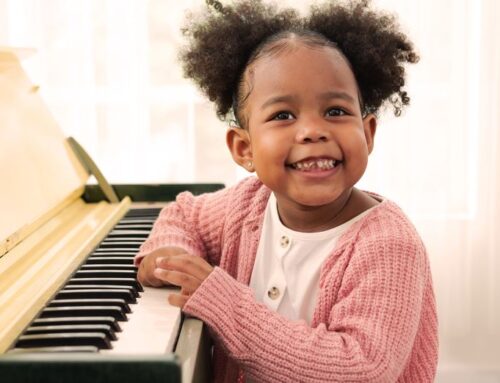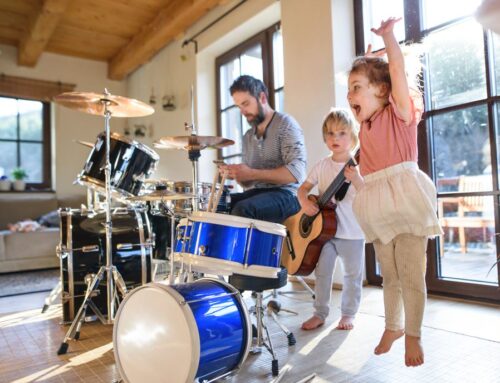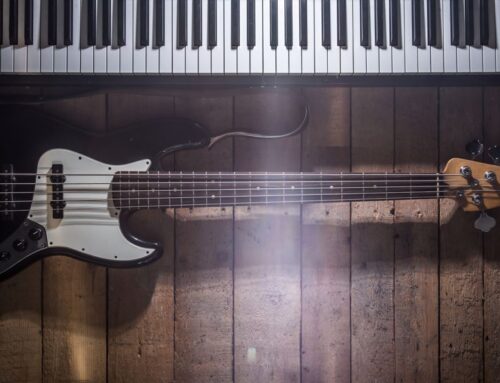
Here are 5 things to consider in helping your child to enjoy playing music, rather than focusing too much on the practice part of things:
1. Playing Music Brings Out Our Children’s Creativity
When we allow our children to just play their music without focusing so hard on technique, they are free to express their emotions and feelings through the music. This can build self-confidence and listening skills as they explore the sounds they are capable of making with their instrument.
2. Play Can Help Them to Develop a Love of Music
If all we do is drill our children, forcing them to endlessly practice scales and tricky techniques, it sucks all the fun and joy out of the experience. Students are at risk of growing to hate playing their instrument if they associate it with nothing more than these endless drills. Instead, give them lots of time to just play for the pleasure of it.
3. Turn Practicing into Play
Practicing based on the last music lesson doesn’t have to be all business all the time. Set up a reward system where they earn coins for successfully reaching a new milestone. Perhaps your child has an idea for adding some fun to practice – listen to their ideas, and if it makes sense, why not go for it! Let them belt out (singing play!) their favourite songs in the shower; or, rock out with them and play drums on the basement drum set! How about a little game of “name that tune” on the piano?
4. Allow Your Child Choice of Music Lessons
Even your best intentions to make learning music feel like play can fail if your child doesn’t feel like they have any choice in the matter. Give your child input into when they practice, and for how long at a time. If possible, allow them a choice of musical instrument to learn – many parents choose an instrument for their child based on what they want to play, rather than what the child wants to play. This makes it very hard for the child to ever feel like they are just having fun when playing since it was never what they wanted to play in the first place.
5. Children Learn from Play
Going through the music purely for pleasure can help a child to improve their coordination and muscle memory for the piece. It improves their familiarity with the notes, which can make more focused practice on more difficult parts go easier later on. Playing music stimulates the brain. Focusing on the fun parts of playing music can also relieve stress, encourage self-expression, expose them to different cultures and history, and promote happiness.
There may be indirect benefits too. Some studies have even indicated that children who are exposed to music lessons experience improved reading and comprehension skills. In addition to that, if you encourage your child’s love of music through play, they will also learn responsibility – responsibility for caring for that instrument, making it to music lessons on time, and for learning the techniques assigned to them by their music teacher.
Summing Up
Practicing most certainly has an important role to play in the musical education of a child. However, ensuring that your child develops a love for music is equally important, especially if your child is to have any chance of including music in their life long-term. Ensuring that they have adequate time to just play for the pure joy of it is crucial. Find balance. Consider using ‘play time’ as a reward at the end of each practice session. Just make sure you allow enough of it – all work and not enough play is a bad combination.
Yes, Capstone Music is a music school so we do teach music lessons. Yet our philosophy is one where the love of playing inspires some of the world’s greatest musicians – whether performing formally or in your own home. Contact us if you love music and are ready to…play!




